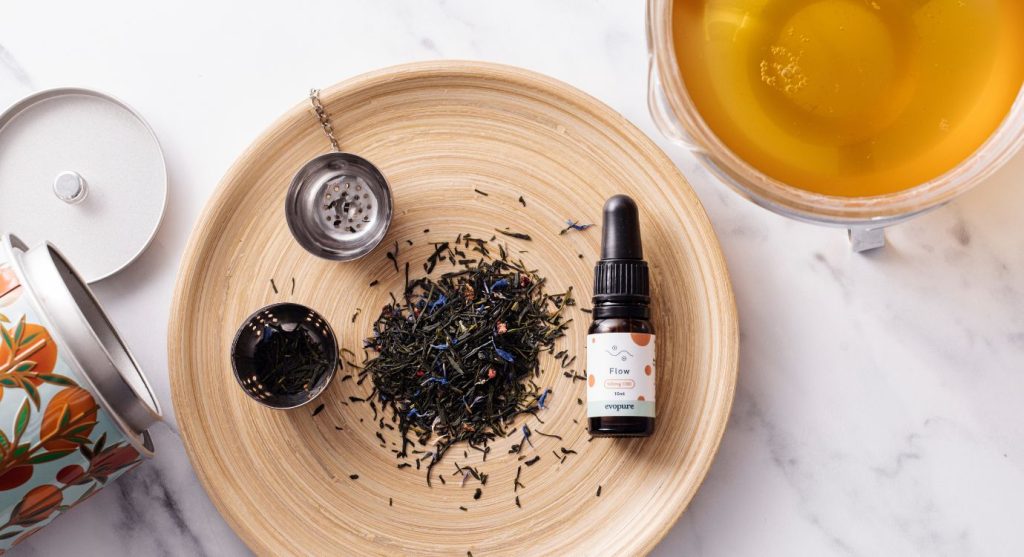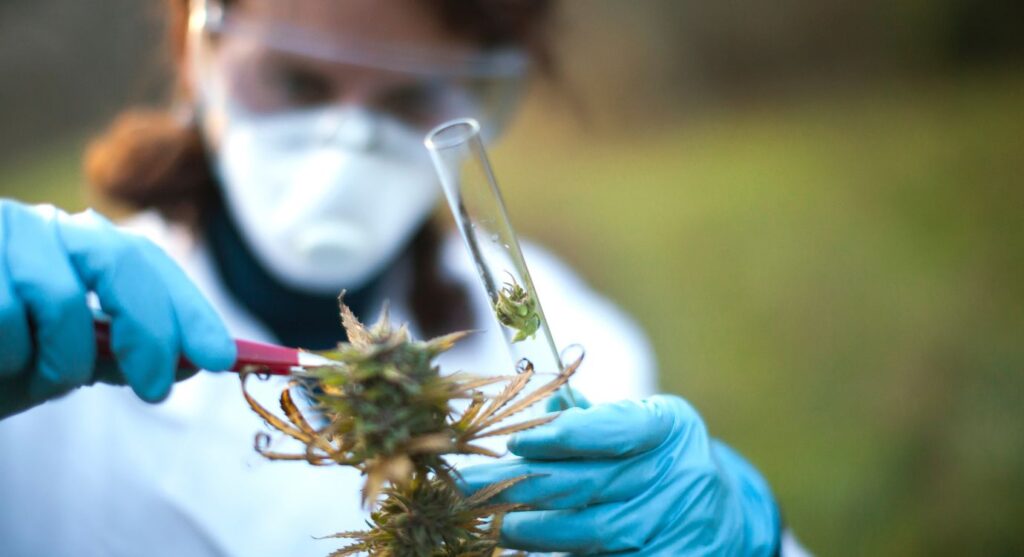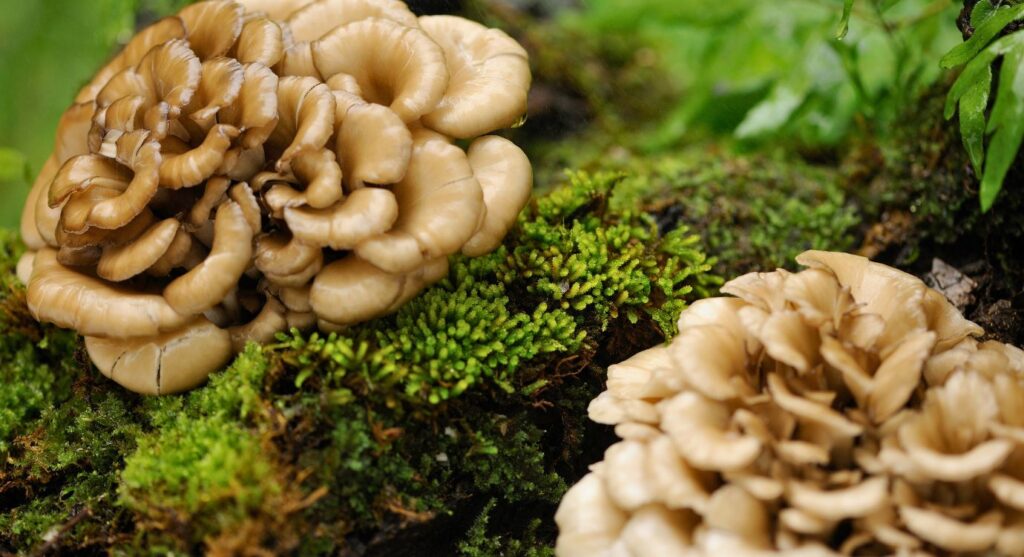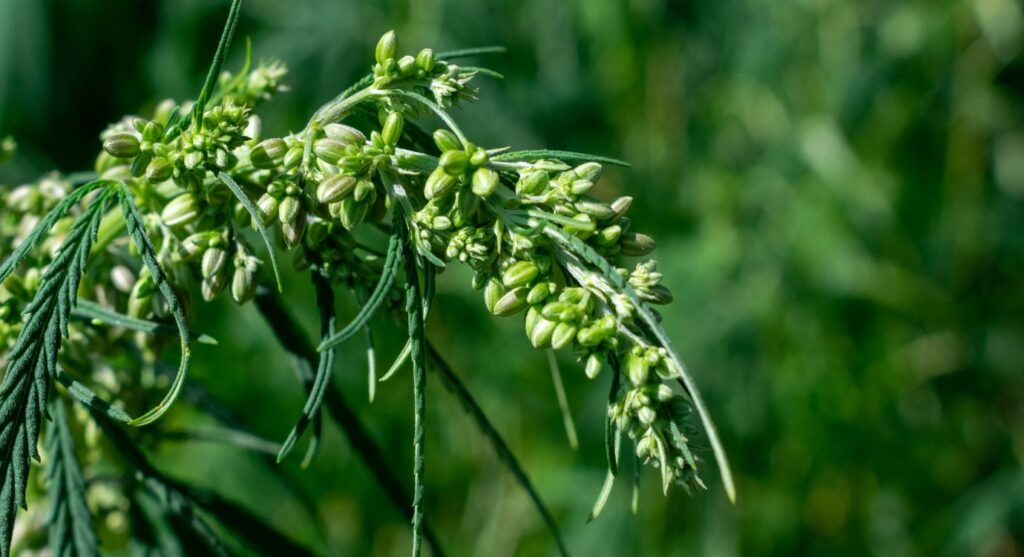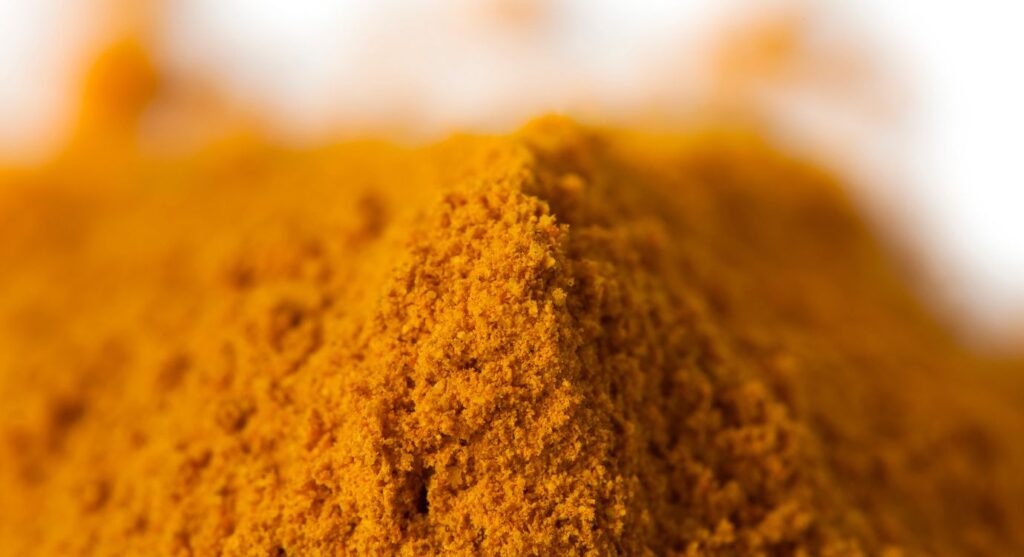Will adaptogenic mushroom improve my health?
Should I be adding them to every meal?
From protein powders to capsules, as wellness trends have skyrocketed in recent few years, so have the popularity of adaptogenic mushrooms.
But is it a fad? Are they really health boosting miracle funghi? And what are the risks involved in taking them?
We break down everything you need to know:
- What are adaptogenic mushrooms
- The low-down on adaptogenic mushroom supplements
- 6 types of adaptogenic mushrooms & their potential benefits
In this guide:
What are adaptogenic mushrooms?
Adaptogens are a group of herbs and plants that are thought to help the body adapt.
They are often sold as “stress busting” or “immune boosting”, but this isn’t always entirely accurate.
If you’re hoping that a single dose of adaptogenic mushrooms could lead to a superhuman immune system overnight, you’re probably being a little optimistic.
But with continued use, you could notice some health benefits associated with integrating adaptogenic mushrooms into your supplement routine.
While you may associate adaptogens with the noticeable surge in ‘wellness’ marketing in recent years, adaptogens are not a new concept: these ingredients have been used in Ancient Chinese medicine and Ayurvedic medicine for thousands of years.
Time for a quick history lesson: In the 1940s, a Russian scientist coined the name “adaptogen”, while exploring how certain herbs and plants might be used to increase the body’s resistance to stress.
In fact, Russian soldiers used adaptogens, including Rhodiola Rosea and Siberian Ginseng, to help boost their physical performance and mental clarity in tough conditions.
There are now around 70 plant extracts that are thought to be adaptogenic, including a range of mushrooms.
Is there any evidence that adaptogenic mushrooms work?
So, do adaptogenic mushrooms definitely, 100% work?
While anecdotal evidence is largely positive, many sceptics are quick to point out that there haven’t been any long-term, large scale studies into the use of adaptogens.
Moreover, the research that has been carried out is not particularly robust – many studies don’t meet internationally accepted criteria for proper clinical trials.
But ‘no news’ doesn’t necessarily mean ‘bad news’. One review of studies on adaptogens concludes that the clinical application of adaptogens is still in its early stages – but indicates that adaptogens could be the subject of further investigation for conditions such as arthritis, sleep problems and stress.
It’s vital to remember that adaptogens are not medicine and should not be treated as such. Instead, they should be explored as a method to enhance wellness and improve your sense of well-being.
Much like CBD, adaptogens are ideal for incorporating into a routine of healthy eating and regular exercise. And instead of relying on them for a quick fix, consistent use is thought to deliver the best results.
Frequently asked questions:
What do adaptogens do for you?
What is the most powerful adaptogen?
Do adaptogenic mushrooms get you high?
No, adaptogenic mushrooms are not magic mushrooms. They are not intended to alter your mental state. And they won’t induce hallucinations.
If adaptogenic mushrooms could get the user high, they wouldn’t be sold in health food shops.
However, when sourcing your adaptogenic mushroom products, it’s important to get them from reputable sources. If you choose a less reputable source, there could be a tiny chance you are purchasing an illegal product.
For the avoidance of doubt, always purchase your adaptogens from legitimate companies (as opposed to from random Instagram pages, for instance.)
Are adaptogenic mushrooms safe?
While most people will not have an adverse reaction to adaptogenic mushrooms, the risk of an allergic reaction is always possible.
It’s important to pay close attention to the ingredients in adaptogenic mushroom blends as they could contain known allergens.
Adverse reactions to adaptogens have also been recorded. This could include fatigue, headaches, nausea, vomiting, dizziness.
“What if I take medication?”
If you take blood pressure medications, make sure to steer clear of adaptogenic supplements.
There is also limited evidence to suggest if adaptogens are safe to use when pregnant or breastfeeding, so we’d advise to always stay on the safe sade and avoid entirely when pregnant or nursing.
“Has anyone been severely affected from consuming adaptogens?”
While statistics are small, they do exist. There have been two documented cases of liver toxicity related to the use of reishi powder, while Lion’s mane is also known to cause allergic reactions.
As with any herbal supplement, it’s important to pay close attention to the origins and ingredients.
And stop taking your supplements and speak to a medical professional if you have any adverse reactions.
How to take adaptogenic mushrooms
If you’re curious about adaptogenic mushrooms and want to add them to your diet, there are a few ways you can give them a go.. Capsules, tinctures, teas and powders are the most common way to add adaptogens into your diet.
- In capsule form: Mushrooms can have quite a strong, earthy flavour. To counter this, many individuals choose to take their adaptogenic mushrooms in capsule form.
- Via tincture: Tinctures may contain multiple adaptogens and other plant nutrients. A tincture would be taken as drops in the mouth, similar to taking CBD oil.
- Drinking tea: Tea made from adaptogenic mushrooms is growing increasingly popular. You may even see adaptogen tea served in your favourite health food shops and cafes.
- Eaten (powder form): Powdered adaptogens can be added to a variety of hot and cold foods. Many people enjoy them in smoothies, juices and savoury baked goods.
Before you take any adaptogenic mushrooms, always check with your GP.
How to take adaptogen mushrooms
Capsules
A consistent dose while on-the-go
Oil
Quick & easy sublingual drops
Tea
A delicious & nourishing cup of tea
Powder
Blended into refreshing smoothies
7 types of adaptogenic mushrooms & their potential benefits
There are many different types of adaptogens and adaptogenic mushrooms to try. Here are 7 of the most popular types.
1. Shiitake
Shiitake mushrooms are a light brown fungi with a thin, slender stalk and a wide cap. They are commonly used in cooking as they are rich in B vitamins, vitamin D, zinc and copper.
They are also a good source of fibre.
Shiitake mushrooms also contain eritadenine, sterols and beta-glucans, three compounds that are thought to help lower cholesterol. They are also rich in polysaccharides, which may help to boost immune function.
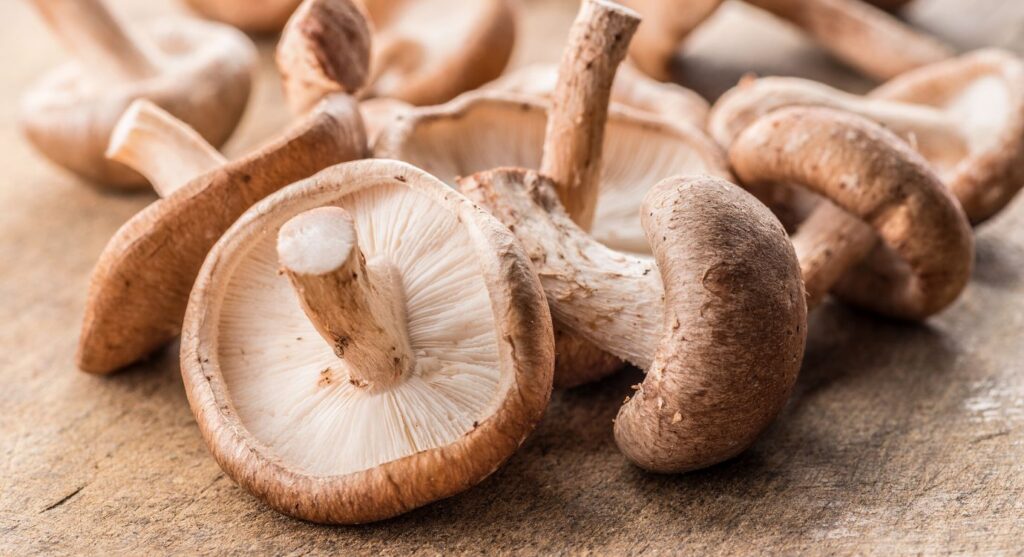

2. Chaga
This dark fungus grows on the bark of birch trees and looks a lot like a clump of burnt charcoal.
Chaga mushrooms are rich in antioxidants and are thought to help reduce inflammation and oxidative stress throughout the body.
There is also limited research suggesting that Chaga mushrooms could help control blood sugar levels, lower blood pressure, and alleviate arthritis.
Read more: Chaga mushrooms
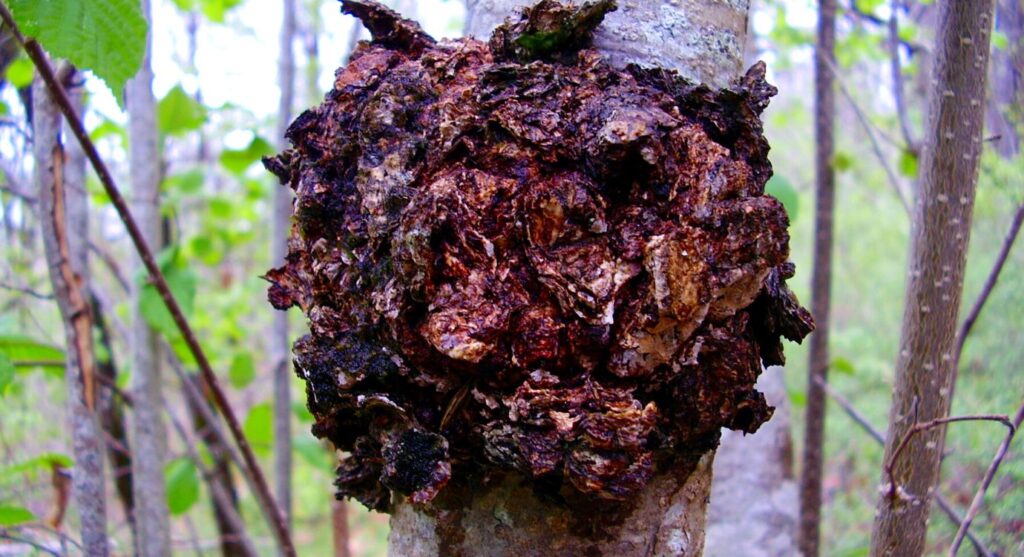

3. Lion’s Mane
These large, white shaggy mushrooms get their name from the long spines that hang down and look like a lion’s mane. This adaptogen is throughout to help boost immune function and reduce symptoms of anxiety and depression.
Lion’s mane is also thought to help improve cognitive impairment. This is because it stimulates the production of the Nerve Growth Factor (NGF).
Low NGF levels are linked to conditions such as Alzheimer’s and dementia.


4. Reishi
Reishi is a large, flat, kidney-shaped mushroom. Reishi mushrooms have a very distinct fan-shaped cap with shades of deep red, brown and white.
Reishi mushrooms are one of the most common adaptogens available. They are thought to help boost overall wellness and are also rich in triterpenes and beta-glucans, which may help to reduce cholesterol.
Read more: Guide to Reishi mushrooms


5. Cordyceps
The name Cordyceps refers to a genus that includes around 600 species of mushrooms. The fruit is cylindrical in shape and contains many small flask-shaped perithecia.
Cordyceps mushrooms increase the production of adenosine triphosphate (ATP), which helps to boost cellular oxygen absorption, making it the ideal supplement to boost oxygen flow during exercise.
Cordyceps have been used in traditional Chinese medicine for thousands of years and are believed to help reduce fatigue and boost sex drive.


6. Ashwagandha
Although not technically a fungus, ashwagandha is an adaptogenic herb derived from the roots and berries of an evergreen shrub.
It has been used in traditional Ayurvedic medicine for thousands of years.
Ashwagandha is commonly sold as a supplement that can tackle many problems, including stress, anxiety, depression, sleep issues and cognitive function.
At the moment, the research into the use of ashwagandha for stress shows the most promise.
7. Turkey Tail
The turkey tail mushroom is a multicoloured fungus with a fan-shaped cap with an impressive display of colours. It s rich in antioxidants and is also thought to help boost the immune system.
Turkey tail mushrooms are also rich in krestin (PSK) and Polysaccharide Peptide (PSP). These have been found to activate the immune system and suppress inflammation.
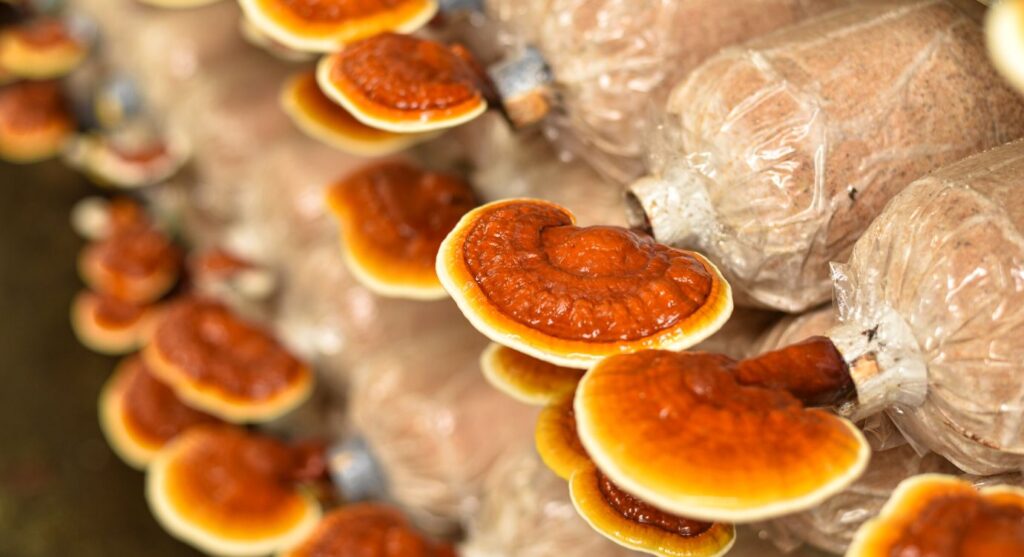

Final thoughts on adaptogen mushrooms
Incredible wellness hack or just another supplement lacking supporting scientific evidence?
We’d say that while they won’t cure medical conditions, adaptogen mushrooms are certainly worth a try.
With a long history of being used in Traditional Chinese Medicine, what adaptogen mushrooms lack in empirical supporting evidence is made up – to some extent – by consistently strong anecdotal reports dating back centuries.
However, don’t just dive straight in – always speak to your doctor before adding any supplement to your wellness routine. Avoid if you’re pregnant or breastfeeding, and don’t expect any earth-changing results – particularly not quick ones.
10% off on your first order
Complete this one-minute quiz and find the right products for you.









